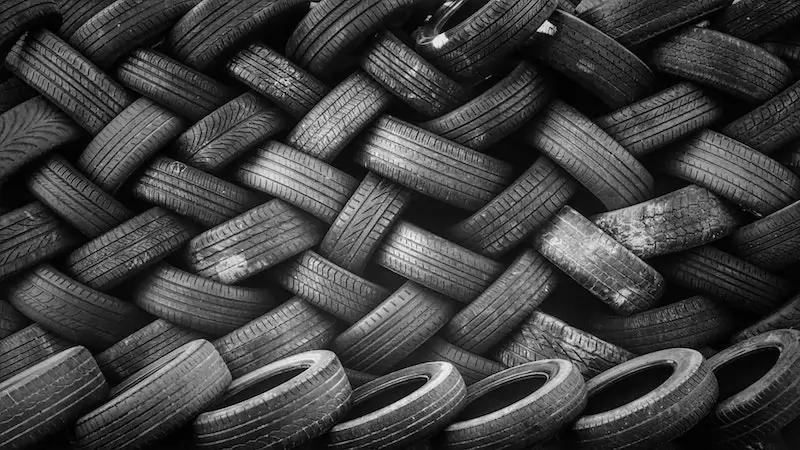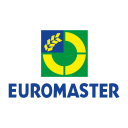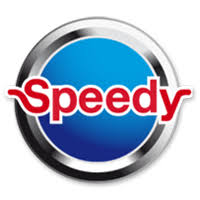Synthèse
The global tire market has demonstrated resilience with an expected valuation of 276 billion euros in 2022, propelled by an 8.05% average annual growth rate set to continue until 2029. Despite a contraction in 2020 due to the pandemic, the market quickly rebounded in 2021, with the French market making a significant recovery with a 16.6% increase in tire sales volume. A shift toward all-season tires is evident in France, with these tires expected to comprise 27% of 2022 sales. The market is also experiencing a surge in 4x4 tire sales, with an unprecedented 458% increase. Online sales are thriving at the expense of specialist retailers, contributing to competitive pricing and impacting manufacturers' margins. Notably, despite the overall sector's workforce decline by over 16%, premium segments are flourishing.
Regulations such as the harmonized labeling system and the Loi Montagne have influenced consumer behavior, while a preference towards all-season and higher-quality tires is apparent among French consumers. Michelin remains the dominant brand, holding a majority preference of 64.2% in France. Overall, robust demand and market expansion are shaping the tire industry's trajectory post-2020.
Navigating the Dynamics of the French Tire Market: Demand, Trends, and Consumer Preferences
The French tire market is experiencing an interesting evolution, with the demand for tires intimately linked to the steady increase in road traffic. Observing recent years, there's been an uptick in the number of vehicles on the road, significantly contributing to the need for both original equipment and replacement tires. In particular, the volume of traffic has augmented, translating to over 20% growth since the early 2000s. One notable trend is the rising popularity of all-season tires among French consumers. This segment has seen a significant surge, accounting for nearly one-quarter to one-third of total tire sales. Curiously, despite the seasonal changes in France, a relatively low proportion of drivers switch to winter tires, indicating that most wait until tire damage to consider replacements. Looking at market structure, the French tire sector is demonstrating signs of consolidation, with fewer establishments in tire manufacturing and retreading.
The distribution channels are also shifting, with "pure players" and other new sales channels gaining ground at the expense of specialist retailers. Notably, almost one-half of passenger tire distribution in volume has moved to these alternative channels. On the price front, tire costs, after a period of decrease, started to climb and have continued their ascent across various categories. Interestingly, all-season tires have become pricier over time, likely due to increased demand and perhaps a premium placed on their year-round utility. Delving into the product types, the French market is leaning heavily towards passenger tires, which represent a substantial majority in terms of volume.
However, when it comes to profitability, truck tires take the lead despite constituting a smaller proportion of volumes sold. Brand loyalty is quite evident in France, with Michelin emerging as the clear favorite among tire brands, appealing to a significant two-thirds majority. This preference also tends to strengthen with age, as a higher percentage of the older demographic exhibits affinity for the brand. Not only do consumers favor Michelin, but they also regard it as a useful brand, a sentiment that resonates with over one-third of the respondents surveyed.
In conclusion, the French tire market remains dynamic and robust, driven by the continued growth in road traffic and a distinct shift in consumer preferences towards all-season tires. While the marketplace exhibits a trend towards consolidation and new distribution methods, the affection and trust in established brands like Michelin still hold a strong influence over consumer choices.
Key Players Shaping the Tire Industry Landscape
As we examine the landscape of the tire industry, several major players emerge as pivotal forces driving innovation, market dynamics, and consumer preferences. These companies not only influence the types of tires consumers select but also how they are distributed and sold in a highly competitive market.
- Michelin stands at the forefront of the tire manufacturing world, not merely as a leader in market share but also as the most recognized and preferred brand among French consumers. Known for its commitment to quality and safety, the popularity of Michelin is evident across various demographic groups, especially among the older generation who show a profound loyalty towards the brand. Michelin's prominence is bolstered by the brand's far-reaching reputation for producing reliable tires that embody performance and durability.
- Continental is another powerhouse, with a robust presence in the European sector, particularly in the production of passenger car tires. The company, which traces its origins to Germany, has established itself as a standard-bearer for tire innovation and technological advancements. Its favored status among consumers, although not as pronounced as Michelin's, reflects Continental's strong brand image and the trust it has cultivated over the years.
- Making a substantial mark in the industry, Goodyear has secured its position through strategic market offerings, including a mix of all-season, summer, and winter tires. The American multinational corporation holds an esteemed reputation for delivering quality and has become known for tires that support drivers across various weather conditions and driving scenarios. Goodyear's expertise extends from consumer vehicles to commercial trucks, showcasing a versatile and far-reaching product lineup.
- Bridgestone, the Japanese multinational auto and truck parts manufacturer, adds to the global diversity among tire industry leaders. With an extensive portfolio that includes tires for a wide range of vehicles, from passenger cars to heavy-duty trucks, Bridgestone offers consumers a blend of performance, safety, and efficiency that caters to the needs of a dynamic market.
- On the distribution front, specialized retailers such as Euromaster France and Point S have carved out significant niches for themselves. These companies focus on the specialized tire distribution sector and have established strong BtoB and BtoC presences. They offer a comprehensive range of services, from sales to maintenance, demonstrating the integral role specialist distributors play in connecting consumers with the right tire products.
- Lastly, ProfilPlus represents a rising presence in the specialized distribution market, serving both business and individual customers.
à la compréhension de ce marché
Détail du contenu
 Informations
Informations
- Nombre de pages : 30 pages
- Format : Version digitale et PDF
- Dernière mise à jour : 13/10/2023
 Sommaire et extraits
Sommaire et extraits
1 Market overview
1.1 Definition and scope of study
The tire (tire segment) is produced mainly from rubber and inflated with air or nitrogen. It provides grip and shock absorption by surrounding the metal rim of a vehicle. Tires are characterized by a particular tread pattern (symmetrical, asymmetrical, directional) and a specific type of use (depending on vehicle type, suitable for snowy weather, racing vehicles, etc.).
We must also distinguish between sales of tires directly installed on a newly-registered car ("original equipment") and so-called replacement sales of new or retreaded tires. A distinction is also made between tires for sedans, SUVs and 4x4s, vans, trucks and other vehicles.
The French market suffered from declining sales at the end of 2018. However, certain market segments remain dynamic, such as off-road and truck tires, which are resisting the downward trend in the sector. The market also faces international competition, particularly from Germany and China.
The market can rely on its international players and, above all, on the development of online sales by "pure players", even if they partly undermine the business of specialist retailers (in physical outlets), who lose market share every year.
The boom in online sales is contributing to the downward trend in consumer prices, while reducing manufacturers' and distributors' margins. Falling prices are prompting the sector's major players to offer ever more differentiated products to justify higher price levels, and to constantly renew their ranges and innovations (compressed-air-free technology, for example). The "premium" and "top-of-the-range" segments of the offer are thus doing well, with sales figures on the rise.
The Covid-19 epidemic had a severe impact on the original equipment tire segment, but replacement sales should remain stable, enabling manufacturers to weather this external shock. The sector has been hit hard by inflation, with average prices rising by more than 10% across all segments and distribution channels.
The global tire market was valued at 276 billion euros in 2022 , and is expected to grow atan average annual rate of 8.05%.
On a national scale, the volume of tire production and retreading is expected to exceed 31 million in 2022.
1.2 Global market growth
Tire market trends France, **** - ****, in billions of euros Source: ****
*projections
estimated at *** billion euros in ****, the global tire market is expected to grow at an average annual rate of *.**% until ****, reaching sales of ***.** billion euros.
Passenger car tire production breakdown Europe, ****, in Source: ****
At European level, Germany is the ...
1.3 The French market
Trends in tire sales volume (***) France, **** - ****, in millions Source: ****
The French tire market is generally very stable. There have been few significant rises or falls over the past decade, apart from during the pandemic. The market did contract in **** (***). In ****, market volume was estimated at **.** million tires.
Evolution of tire ...
1.4 Foreign trade
External balance of the tire sector France, **** - ****, in thousands of euros Source: ****
After the pandemic, international trade rapidly picked up again, particularly imports. The coverage rate was *.** in ****. The main countries receiving French exports are as follows:
Main tire export partner countries France, ****, in thousands of euros Source: ****
Germany is ...
2 Demand analysis
2.1 Structural determinants of demand: road traffic
Naturally, the demand for tires (***) is highly dependent on the density of road traffic in France. These two indices are correlated, since the more cars there are, the more tires are needed.
Average daily traffic trends France, **** - ****, in vehicles/day Source: ****
There is a structural increase in road traffic in ...
2.2 Demand drivers: the seasons
The seasons play an important role in tire demand. But not all French people are sensitive to this variable, and therefore don't change their tires all year round:
Tire choice by season France, ****, in Source : Goodyear The majority of French drivers use all-season tires all year round (***). More than a fifth ...
2.3 French preferences
All-season tires increasingly popular
Tire sales volumes by type France, **** - ****, index base *** in **** Source: ****
Since ****, the trend has clearly been in favor of all-season tires. This type of tire will account for **% of sales in ****.
Winter tires, on the other hand, are affected by the government's delay in implementing the ...
2.4 Favourite Brands in France
Preferred tire brands France, ****, % of total Source: ****
Michelin is by far the most popular tire brand in France, with **.*% of respondents saying they like the brand. It is also the best-known: only *.*% of those surveyed were unfamiliar with it. The other four brands have relatively similar statistics: they are liked by ...
3 Market structure
3.1 Market organization: from new tire production to distribution
Source: ****
3.2 A trend towards concentration of players
The sector appears to be undergoing a process of concentration, as illustrated by the following graph:
Number of establishments in penumatic manufacturing and retreading France, **** - ****, in units Source: ****
The number of companies registered under NAF code ****Z "Tire manufacturing and retreading" has effectively been in structural decline since ****. In ****, there ...
3.3 Distribution
the following chart shows the changing structure of the tire sales sector since ****:
Passenger car tire volumes by distribution channel France, **** - ****, in Source: ****
The growing popularity of other channels (***).
Focus on specialized distribution
Breakdown of volumes by type of activity France, ****, in Source: ****
In terms of volume, the BtoB and ...
4 Offer analysis
4.1 Tyre types and main parts
The main parts of tires
The crown area: This is the area in contact with the road surface, so it must provide grip without impeding rolling. In addition, to prevent aquaplaning, this zone is sculpted with slots whose depth depends on the type of tire and current regulations. Sidewall: this area ...
4.2 Price trends
Tire price trends by category France, **** - ****, in € incl. VAT Source: ****
While tire prices (***). Light truck and touring tires, meanwhile, reached record prices in ****: the price of a light truck tire is €***, and the price of a touring tire, although still the least expensive, is €***.
Average price trends for all-season, summer ...
4.3 Sales structure by product
Breakdown of sales volumes by product type France, ****, in Source: ****
In terms of volume, sales of passenger tires account for a significant share (***). However, the orders of magnitude change dramatically when we reason in terms of sales rather than sales volume:
Breakdown of specialized tire distribution sales by product type France, ...
5 Regulations
5.1 Harmonized systems and Nomenclature des Activités Françaises
The Harmonized System is an international nomenclature for product classification. It enables participating countries to classify traded goods on a common basis for customs purposes. At international level, the Harmonized System (***) for the classification of goods is a six-digit code system. [***]
The HS comprises around *,*** item/product descriptions, which appear as ...
5.2 Current regulations
Since June ****, all tires manufactured and marketed within the European Union must carry a sticker or label displayed at the point of sale. The label must provide a range of information:
Wet braking (***) Tire noise level (***) Fuel consumption (***)
Source: ****
These obligations were reinforced in November **** and **** with controls. This labeling system ...
6 Positioning the players
6.1 Segmentation
- Michelin Groupe
- Goodyear
- Bridgestone
- Euromaster
- Speedy (Bridgestone)
- Mobivia Groupe (Norauto, Midas)
- Point S
- Allopneus
- Feu Vert
- Norauto France
- Pirelli
- Continental
- Midas France
- Hankook Tire
- Roady (ITM Intermarché)
- WYZ Entreprise
- Bestdrive (Continental group)
- Bestdrive (Continental group)
- First Stop (Bridgestone)
- 1001Pneus
 Liste des graphiques
Liste des graphiques
- Evolution du marché du pneu
- Répartition de la production de pneumatiques pour véhicules de tourisme
- Evolution du trafic moyen journalier
- Evolution du nombre de kilomètres parcourus
- Evolution du nombre d'abonnés liber-t (télépéage véhicules légers)
Toutes nos études sont disponible en ligne et en PDF
Nous vous proposons de consulter un exemple de notre travail d'étude sur un autre marché !
Dernières actualités
Entreprises citées dans cette étude
Cette étude contient un panorama complet des entreprises du marché avec les derniers chiffres et actualités de chaque entreprise :
 Choisir cette étude c'est :
Choisir cette étude c'est :
Accéder à plus de 35 heures de travail
Nos études sont le résultat de plus de 35 heures de recherches et d'analyses. Utiliser nos études vous permet de consacrer plus de temps et de valeur ajoutée à vos projets.
Profiter de 6 années d'expérience et de plus de 1500 études sectorielles déjà produites
Notre expertise nous permet de produire des études complètes dans tous les secteurs, y compris des marchés de niche ou naissants.
Notre savoir-faire et notre méthodologie nous permet de produire des études avec un rapport qualité-prix unique
Accéder à plusieurs milliers d'articles et données payantes
Businesscoot a accès à l'ensemble de la presse économique payante ainsi qu'à des bases de données exclusives pour réaliser ses études de marché (+ 30 000 articles et sources privées).
Afin d'enrichir nos études, nos analystes utilisent également des indicateurs web (semrush, trends…) pour identifier les tendances sur un marché et les stratégies des entreprises. (Consulter nos sources payantes)
Un accompagnement garanti après votre achat
Une équipe dédiée au service après-vente, pour vous garantir un niveau de satisfaction élevé. (+33) 9 70 46 55 00
Un format digital pensé pour nos utilisateurs
Vous accédez à un PDF mais aussi à une version digitale pensée pour nos clients. Cette version vous permet d’accéder aux sources, aux données au format Excel et aux graphiques. Le contenu de l'étude peut ainsi être facilement récupéré et adapté pour vos supports.
 Nos offres :
Nos offres :
the tire market | France
- Quels sont les chiffres sur la taille et la croissance du marché ?
- Quels leviers tirent la croissance du marché et leur évolution ?
- Quel est le positionnement des entreprises sur la chaine de valeur ?
- Comment se différencient les entreprises du marché ?
- Données issues de plusieurs dizaines de bases de données
Pack 5 études (-15%) France
- 5 études au prix de 75,6€HT par étude à choisir parmi nos 800 titres sur le catalogue France pendant 12 mois
- Conservez -15% sur les études supplémentaires achetées
- Choisissez le remboursement des crédits non consommés au terme des 12 mois (durée du pack)
Consultez les conditions du pack et de remboursement des crédits non consommés.
- 03/04/2024 - Ajout des informations de l'entreprise 1001Pneus
- 01/03/2024 - Mise à jour des données financières de l'entreprise Michelin Groupe
- 21/01/2024 - Ajout des informations de l'entreprise First Stop (Bridgestone)
- 04/11/2023 - Mise à jour des données financières de l'entreprise Michelin Groupe
- 23/10/2023 - Ajout des informations de l'entreprise Bestdrive (Continental group)
- 23/10/2023 - Ajout des informations de l'entreprise Bestdrive (Continental group)
- 13/10/2023 - Ajout des informations de l'entreprise VYZ Entreprise
- 09/10/2023 - Ajout des informations de l'entreprise Roady
- 08/10/2023 - Ajout des informations de l'entreprise Hankook Tire
- 08/10/2023 - Ajout des informations de l'entreprise Midas France
- 25/07/2023 - Mise à jour des données financières de l'entreprise Michelin Groupe
- 04/07/2023 - Ajout des informations de l'entreprise Continental
- 04/07/2023 - Ajout des informations de l'entreprise Pirelli
- 04/06/2023 - Ajout des informations de l'entreprise Norauto France (Mobivia)
- 04/06/2023 - Ajout des informations de l'entreprise Feu Vert
- 04/06/2023 - Ajout des informations de l'entreprise Allopneus
- 19/05/2023 - Mise à jour des données financières de l'entreprise Michelin Groupe
- 26/02/2023 - Mise à jour des données financières de l'entreprise Mobivia Groupe (Norauto, Midas)
- 18/02/2023 - Mise à jour des données financières de l'entreprise Michelin Groupe





 Midas recrute des franchisés dans le Morbihan et en Bretagne - 25/04/2024
Midas recrute des franchisés dans le Morbihan et en Bretagne - 25/04/2024
 Michelin : avantages et inconvénients de la montée en gamme - 12/02/2024
Michelin : avantages et inconvénients de la montée en gamme - 12/02/2024
 Un nouveau PDG pour Mobivia (Norauto, Auto 5...) - 08/02/2024
Un nouveau PDG pour Mobivia (Norauto, Auto 5...) - 08/02/2024
 Pirelli : l'Italie remonte au capital de son fleuron national - 10/01/2024
Pirelli : l'Italie remonte au capital de son fleuron national - 10/01/2024
 Continental réduit son offre automobile électrique - 14/11/2023
Continental réduit son offre automobile électrique - 14/11/2023




















